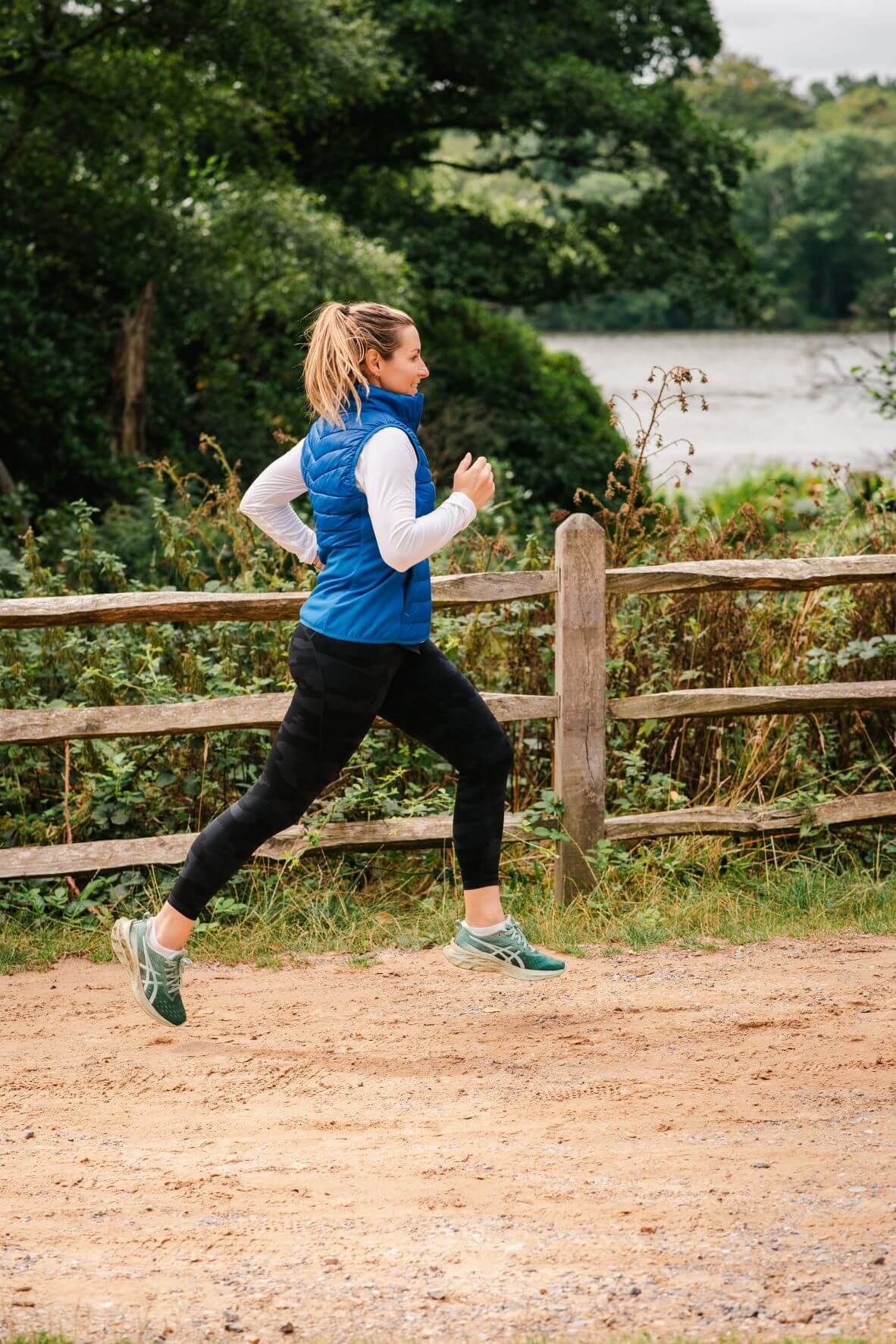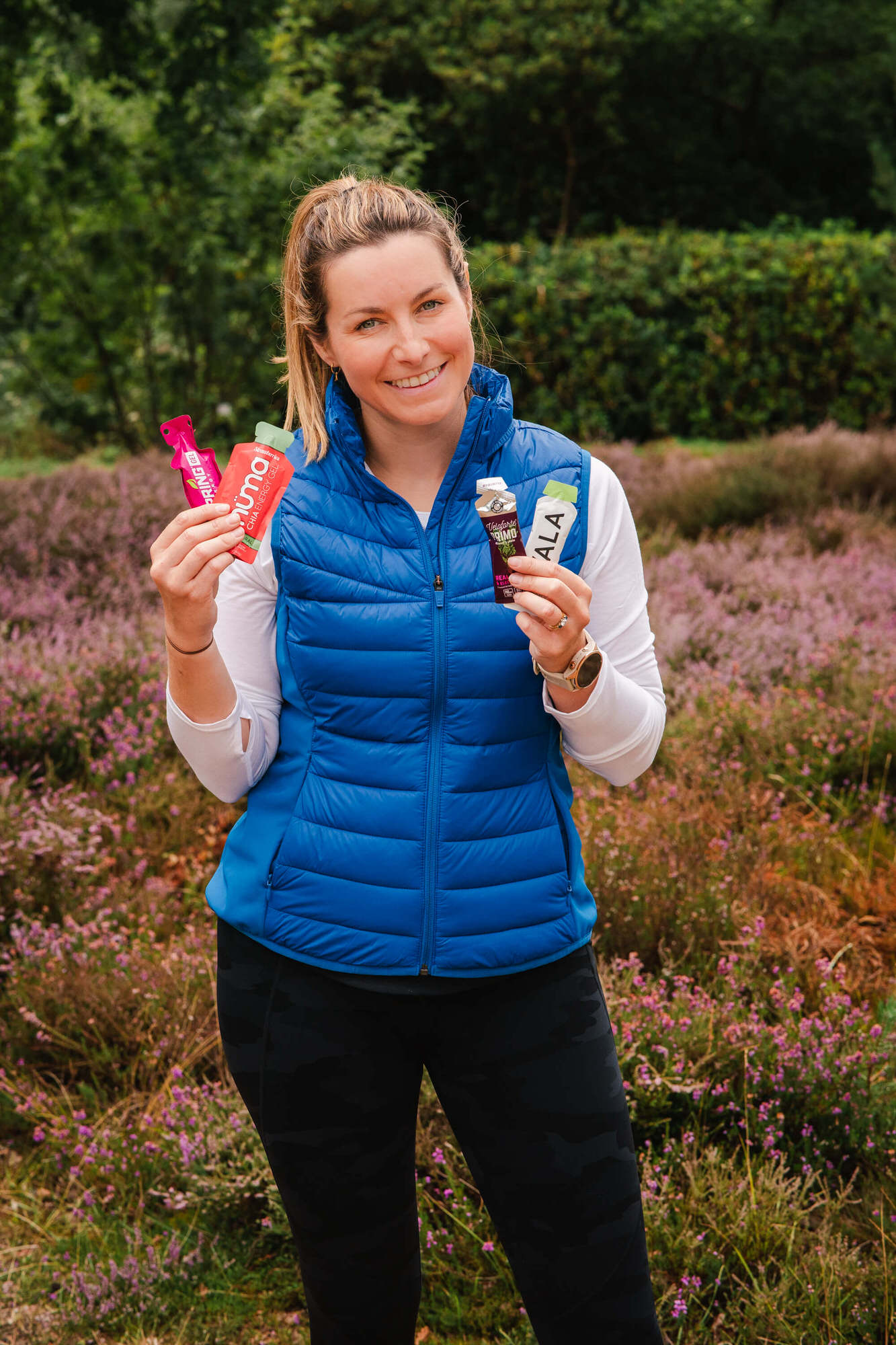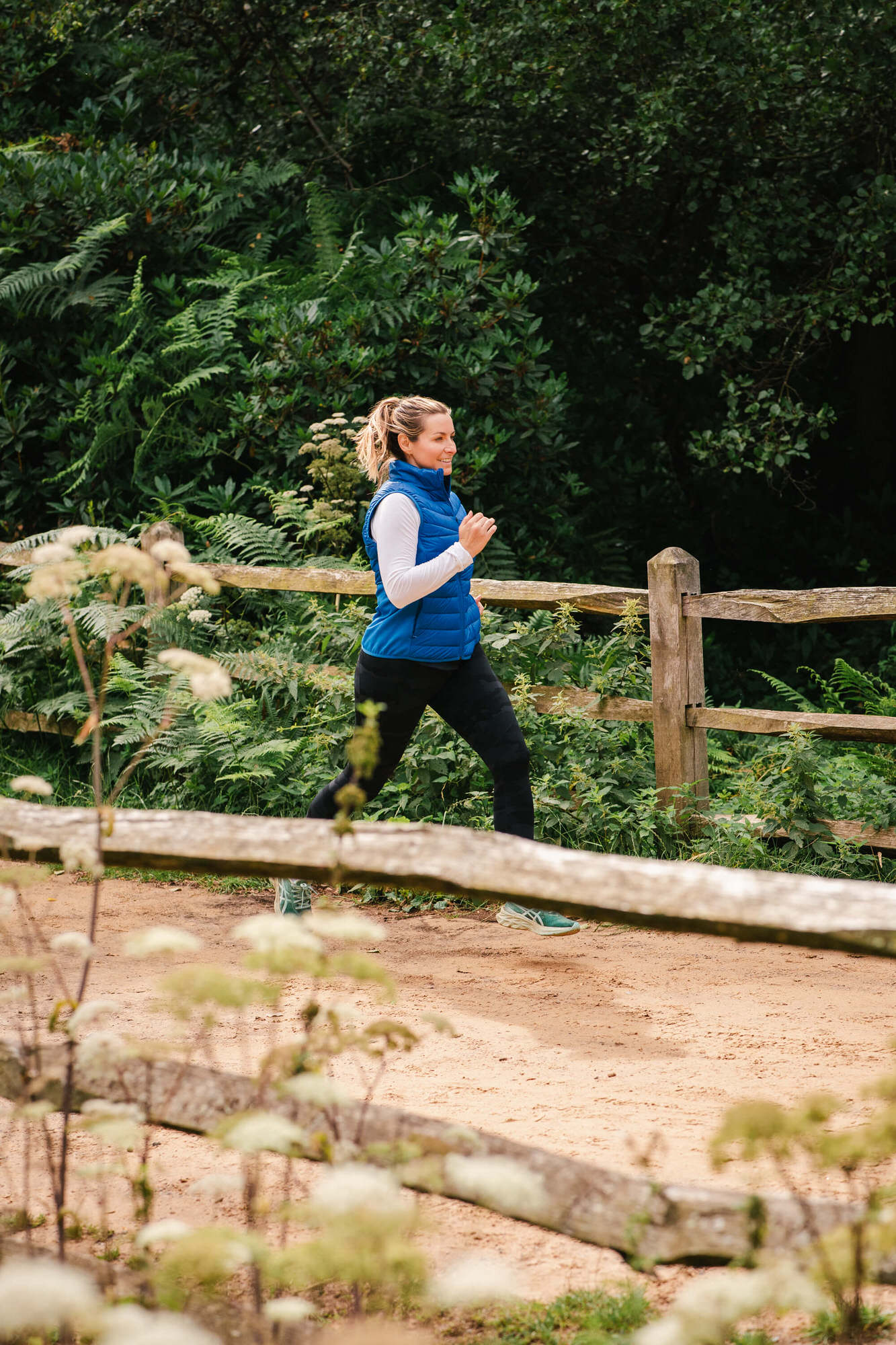
I know far too many runners that don’t fuel during a half marathon, claiming that they ‘don’t need to’. And whilst it’s true that you can get through a 13.1 mile run without taking on extra carbs, you are unlikely to perform at your best and you’re more likely to struggle through the final miles when you run out of energy (when your glycogen stores deplete around 80 or 90 minutes).
When we are running at moderate to hard intensity, we utilise carbohydrates at a faster rate than when we run at easy pace. Consuming carbs when you run a half marathon helps maintain blood glucose levels, delays fatigue and improves performance.
Whilst a lot goes into race day; training, pacing strategy, course route etc, having a solid nutrition plan can help you get the best out of yourself (and help your post run recovery!)
Half Marathon Fueling Guide

Before the Race: Carbs & Fluid
We don’t talk about carb loading as much before a half marathon as a full, however it can still be beneficial. Meghann Featherstun recommends a 1 – 3 day carb load for half marathon – you can use this Carb Load calculator to work out your suggested carbs/days.
Whether you follow a strategic carb load or not, the goal is to ensure your pre-race glycogen stores are at an optimal level.
Night before: Ideally you want simple carbs in a meal you’ve tried before your long runs in training. Limiting the amount of fibre to reduce the likelihood of stomach issues during the race. I’ve shared a number of recipes in my book Cook Eat Run (download my fave Avocado Carbonara recipe here). Make sure to hydrate!
If you are carb loading, it might be a good idea to have a carbohydrate based snack before bed such as a carb drink, bowl of cereal or piece of toast.
Race day morning: aim for a breakfast of easily digestible carbohydrates. For runs over 70 minutes we want to aim for 50-60g of carbs in our pre run meal. This could be an english muffin and banana, porridge with banana or a bagel. If you’re eating over 2 hours before the start gun then adding a little protein, eg peanut butter on your bagel, however I would avoid too much fat and protein if eating closer to your run. Don’t forget to drink enough fluid with your meal, consider having some electrolytes or making up your own electrolyte drink.
Depending on the timing of your race, you may also want to take a snack to the race village to eat 60 minutes before getting to the start line, or have a gel 15 mins prior to the race.
During the Race: Carbs & Fluid/Electrolytes
For most of us, a half marathon falls into the ‘long run over 80 minutes’ category, and is often run at a faster pace and greater effort than marathon pace. For most runners for efforts over 80 minutes, we want to aim for 30-90g carbohydrates per hour on the run.
You can consume carbs on the run through a variety of options;
- Sports gels (read my comprehensive taste test of the best energy gels for runners here)
- Sports Chews or Bars
- Real Food eg potatoes, dried fruit
- Sports Drinks
- Sweets eg Jelly Babies(5g carbs per sweet), Percy Pigs (7g carbs per sweet), Wine Gums (4.5g carbs per sweet)
It’s worth noting that sports gels and other specifically engineered products are typically absorbed more quickly than real food options.
As well as carbs, you need to think about fluid and electrolytes (either tabs like Nuun or natural electrolyte drinks such as coconut water). For runs over an hour, drink between 400-800mls fluid per 60 mins. That can be water or sports drinks. For hot runs or very salty sweaters, adding electrolytes to water can help you perform at your best.
After the Race: Carbs, Protein & Fluid
The goal for refuelling after a run is to replenish glycogen stores (carbs) and repair muscle (protein).
The ideal goal is 0.9g carbs per kg bodyweight per hour, and 0.3g protein per kg bodyweight per hour. Too complicated? Just ensure you have carbs AND protein in your post-race snack or meal, and that you consume enough total energy. Struggling with food post race? Try a smoothie or protein shake mixed with banana or milk/dairy free alternative and then follow up with a meal 1-2 hours later.
Post race you want to replenish the fluid you’ve lost through sweat losses. According to Sports Dietitian Tom Hollis, recommendations are that you rehydrate with 150% of your lost fluid weight. The best way to do this is with a very salty drink which you’re unlikely to find in a typical sports drink. Either make up your own or add a pinch of salt to an isotonic sports drink.
20 HOMEMADE NATURAL RUNNING FUEL RECIPES

Half Marathon Fueling Tips
Know your Sweat Rate
Sweat rate can vary widely between runners, according to Tom Hollis, between 300mls and 2.5L per hour!
1. weigh yourself pre run (in your birthday suit) in KG
2. Run for 60 min without drinking – ideally at goal race pace
3. weight yourself post run (yep, in that birthday suit again) in KG
4 Subtract your post run weight from pre-run weight, multiply by 1000
The amount you lost in grams is what you’ve lost in fluid and should aim to replace per hour on the run to stay hydrated.(You can also run for 30 mins and simply x by two to get ml per hour). If it’s warmer than usual or you’re running at a faster rate, you may need to consume more water or switch to an electrolyte drink to help hydrate on the run.
Make sure to practise!
Whatever you’re going to use on race day, make sure you practise on your long runs! For most people, you will need to train your body to tolerate carbs on the run, and get used to opening your fuel of choice, the taste and texture as well as when to take it to get the maximum performance boost. See my Energy Gel Taste Test as a good starting point if you want to try some new gels!
How are you going to carry it?
Think about how you’re going to carry your fuel of choice on the run; pockets, running belt, hydration pack or handheld bottle. My fave shorts with pockets are these 6 inch cycling shorts.
Check out this post on Best Water Carriers for Runners
Find out what’s on course
Knowing when the aid stations will be, as well as what they will be providing on course is key for most fueling strategies unless you plan on being solely self sufficient. If there is going to be a gel or sports drink provided on course, then it might be worth trying them on your training runs to see if you can tolerate them and could utilise them on race day.
Make sure you know when the water/aid stations are so that you can time your nutrition, and whether you’re going to be given cups or bottles on course.
Be prepared
Bring more fuel than you think you need, just in case things change on race day, you drop something or end up sharing with those you’re running with. It may also be hotter/colder than you have prepped for, meaning you might need to adjust your hydration and electrolytes. Additionally, changes in pace also might require fueling plan changes (eg if you end up running slower, you may require more carbs!)
Before the Phoenix-Mesa Half marathon this year, I realised I’d accidentally put all of my gels into the bag drop. Luckily one of our group had some spare Shotbloks with her which I was very grateful to use!
Caffeine…yay or nay?
Caffeine can help improve performance by 2-4% by reducing perceived exertion and feelings of fatigue. I always have my typical morning coffees, but if you’re planning on taking on caffeine during the race, Meghann Featherstun recommends saving it for a boost towards the end of the race.
Given that it takes 60 minutes to reach its full potential in your bloodstream, that would be just before the halfway mark for a 2 hour runner (earlier for faster runners). Look for a gel or product with about 100mg caffeine (my fave Precision Fuel gels have 100mg and 30g carbs)
Got any questions? Leave them below or send me a DM on instagram!
0 Comments